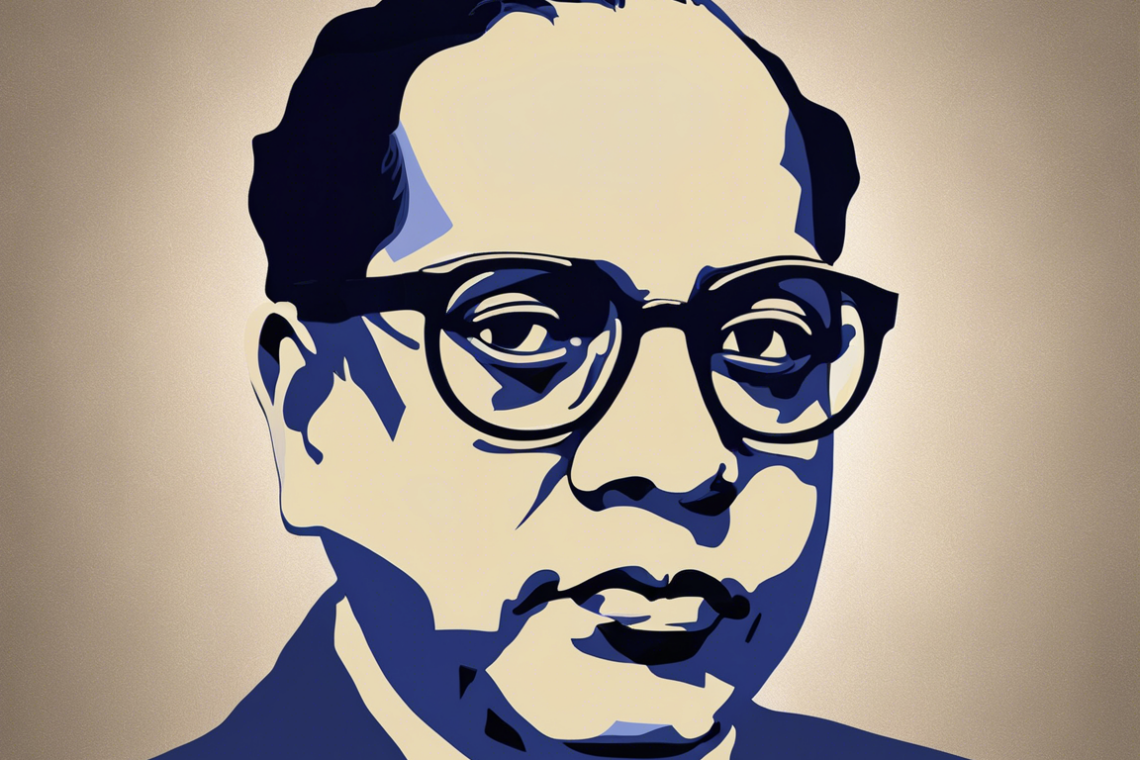Understanding the Legacy of Bhim Rao Ambedkar
Bhim Rao Ambedkar, also known as Babasaheb, was a prominent Indian jurist, economist, and social reformer who dedicated his life to fighting against social discrimination and advocating for the rights of marginalized communities, especially the Dalits, in India. As the chief architect of the Indian Constitution, he played a significant role in shaping the democratic framework of independent India. His contributions to the fields of law, economics, and social justice have had a lasting impact on Indian society. In this blog post, we will delve into the legacy of Bhim Rao Ambedkar, exploring his life, work, and enduring influence on Indian society.
Early Life and Education
Born on April 14, 1891, in a small town in Maharashtra, Bhim Rao Ambedkar belonged to the Dalit community, formerly known as untouchables. Despite facing discrimination and social marginalization due to his caste, he pursued his education diligently. Ambedkar’s quest for knowledge led him to earn multiple degrees, including a law degree from the University of Bombay, a master’s degree from Columbia University, and a doctorate from the London School of Economics.
Advocacy for Social Justice
Ambedkar was a vocal advocate for the rights of the Dalit community and other marginalized groups in India. He fought against caste-based discrimination and worked towards eradicating social inequalities. Ambedkar emphasized the importance of education and economic independence as tools for empowering the oppressed communities. His efforts culminated in the formation of the Independent Labour Party in 1936, which aimed to address the socio-economic issues faced by the marginalized sections of society.
Role in Indian Independence Movement
Ambedkar was actively involved in the Indian independence movement and worked closely with Mahatma Gandhi to eradicate social evils such as untouchability and discrimination. Despite some ideological differences with Gandhi, particularly regarding the issue of separate electorates for Dalits, Ambedkar’s commitment to social reform remained unwavering. He was appointed as the chairman of the drafting committee of the Indian Constitution in 1947, where he played a pivotal role in ensuring the inclusion of provisions that protect the rights of all citizens, irrespective of caste, creed, or gender.
Architect of the Indian Constitution
One of Ambedkar’s most enduring legacies is his role in drafting the Indian Constitution, which came into effect on January 26, 1950. As the chairman of the drafting committee, he ensured that the Constitution enshrined fundamental rights, equality before the law, and social justice. Ambedkar’s vision for a democratic and inclusive India is reflected in the constitutional frameworks that guarantee equal opportunities and protection for all citizens.
Economic Vision and Policy Advocacy
Apart from his contributions to social justice and law, Ambedkar was also a noted economist who advocated for equitable economic policies. He emphasized the need for land reforms, industrialization, and access to education as means to uplift the marginalized sections of society. Ambedkar’s economic vision focused on promoting social welfare, reducing poverty, and ensuring economic empowerment for all citizens.
Legacy and Influence
Bhim Rao Ambedkar’s legacy continues to resonate in contemporary India, where his teachings and principles are revered by millions. He is often hailed as the “Father of the Indian Constitution” and a champion of social justice. In his honor, April 14 is celebrated as “Ambedkar Jayanti” in India, with various events and seminars organized to commemorate his contributions to the nation.
Key aspects of Ambedkar’s legacy include:
- Advocacy for the rights of marginalized communities: Ambedkar’s tireless efforts to secure equality and justice for the oppressed sections of society remain a cornerstone of his legacy.
- Constitutional architect: His pivotal role in shaping the Indian Constitution has had a profound impact on the country’s democratic ethos and governance framework.
- Economic empowerment: Ambedkar’s emphasis on economic policies that promote social welfare and empowerment continues to shape discussions on inclusive development in India.
FAQs (Frequently Asked Questions)
1. Who was Bhim Rao Ambedkar?
Bhim Rao Ambedkar, also known as Babasaheb, was an Indian jurist, economist, and social reformer who championed the rights of marginalized communities, especially the Dalits, in India. He played a crucial role in drafting the Indian Constitution and advocating for social justice.
2. What was Ambedkar’s role in the Indian independence movement?
Ambedkar was actively involved in the Indian independence movement and worked towards eradicating social evils such as untouchability and discrimination. He collaborated with leaders like Mahatma Gandhi to further the cause of social reform and equality.
3. Why is Bhim Rao Ambedkar considered the “Father of the Indian Constitution”?
Ambedkar is often referred to as the “Father of the Indian Constitution” due to his role as the chairman of the drafting committee. He ensured that the Constitution enshrined principles of equality, justice, and fundamental rights for all citizens.
4. What are some of the key principles advocated by Ambedkar?
Ambedkar advocated for equality, social justice, education, and economic empowerment for marginalized communities. He emphasized the importance of uplifting the oppressed sections of society through legal reforms and progressive policies.
5. How is Ambedkar’s legacy honored in India today?
Ambedkar’s legacy is commemorated in India through various events and celebrations, especially on his birth anniversary, known as “Ambedkar Jayanti.” His teachings and principles continue to inspire social reform movements and advocacy for the rights of marginalized communities.
In conclusion, Bhim Rao Ambedkar’s legacy as a social reformer, jurist, and economist remains a source of inspiration for generations of Indians. His unwavering commitment to social justice, equality, and inclusion has left an indelible mark on the country’s socio-political landscape. As India continues to strive towards building a more equitable and just society, the principles espoused by Ambedkar serve as a guiding light in the pursuit of a more inclusive future.








